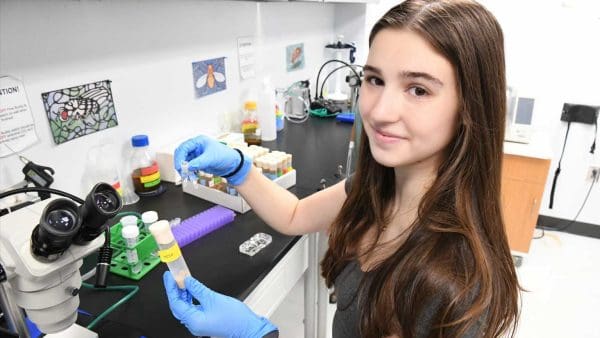
Through a fellowship she earned while still in high school in Pasadena, California, Cleo Bluthenthal visited hospitals in northern India and Nepal to learn about health care settings abroad. While there, she became particularly interested in birthing practices. That trip, along with her broader passion for health care equity, led her to apply to Johns Hopkins, the top-ranked university in the United States for public health.
Classes that Bluthenthal—a senior majoring in public health studies and minoring in women, gender, and sexuality—took during her first year further opened her eyes to racial birthing disparities. According to the Centers for Disease Control and Prevention, Black women in the United States are three times as likely to die as white women when giving birth, and have the highest maternal mortality rates nationally. Given that 84% of pregnancy-related deaths are preventable, according to the Kaiser Family Foundation, the grim statistics suggest that changes in health care policy could save many new mothers.
“Black women risk their lives bringing life into this world more than any other demographic group,” says Bluthenthal. “Biology doesn’t explain that.”
Partnering with the Bloomberg School of Public Health
Encouraged by her professors, Bluthenthal applied for and won a Woodrow Wilson Undergraduate Research Fellowship to study pregnancy complications potentially related to disparate health outcomes in minority women in the U.S. For guidance, Bluthenthal reached out to Zoé Hendrickson, then an associate scientist in the Department of Health, Behavior and Society in the Bloomberg School of Public Health.
Delving into the medical literature, Bluthenthal examined how high preterm birth rates are tied to high maternal mortality across all demographics, but especially in Black women. A predictive risk factor for preterm birth is several cardiovascular conditions, with high blood pressure being the most pronounced.
Fortunately, the conditions are also readily diagnosable and treatable. Increasing access to early screening, for instance through directed funding and outreach, Bluthenthal says, could lead to decreases in preterm birth and maternal deaths.
From research to policy
To highlight these research findings, Bluthenthal has presented at the 2023 Richard Macksey National Undergraduate Humanities Research Symposium and the Society for Public Health Education’s (SOPHE) Annual Conference, as well as in other forums. Her long-term goal is a leadership role in developing integrated approaches to health and social policy that reduce inequitable outcomes for marginalized communities.
“I want to contribute to our body of knowledge so we can improve health care and refuse to allow mistreatment,” says Bluthenthal.




